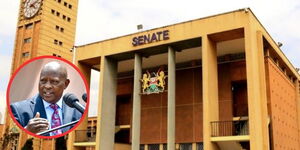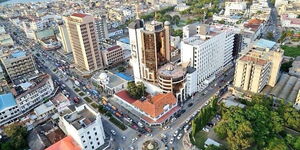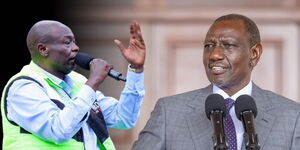Every Kenyan should be worried about President Kenyatta's administration's decisions on the economy, former Finance Minister Musalia Mudavadi observed on Wednesday night.
The Amani National Congress (ANC) party leader in an interview with KTN News noted that Kenyans had been exposed to tougher economic times as a result of the Jubilee government's massive appetite for external debts.
Mudavadi in an analytical view of the state of the Kenyan economy pointed fingers to National Treasury Cabinet Secretary and Central Bank Governor for getting the country into burdensome debts.
Both President Kenyatta and the ANC leader have once headed the finance docket in the country.
He stated that for the first time in the country's history, the foreign debts has surpassed the domestic financial obligation, a trend he says should concern every Kenyan.
"Infrastructural development is acceptable as long as you do not put so much pressure on the citizens. They wanted to build a lot of roads, too many dams and even the Standard Gauge Railway within a very short period of time," stated Mudavadi.
This, he says pushed President Kenyatta's administration into uncontrolled rapid borrowing that turned China, previously an insignificant lender, into Kenyans biggest creditor.
"To get into actual economic growth, any government has no option but ensuring a balance between its equity and debts. This is because you need both in order to make any investments but it is wrong to let your debts overwhelm your equity," divulged Mudavadi.
He criticised Jubilee borrowing habits listing China, Japan, France, Germany, Belgium. IMF and the World Bank as the country's top lenders.
"Before getting any funding for any projects for instance from the IMF, they first ask you how you intend to fund the projects. The persons who get the country into any of this financial obligations is usually the governor of the central bank and the person in charge of the country's finance docket," explained Mudavadi.
His remarks came at a time President Kenyatta has remained silent amidst public outcry over the imposition of a 16% VAT on petroleum products.












